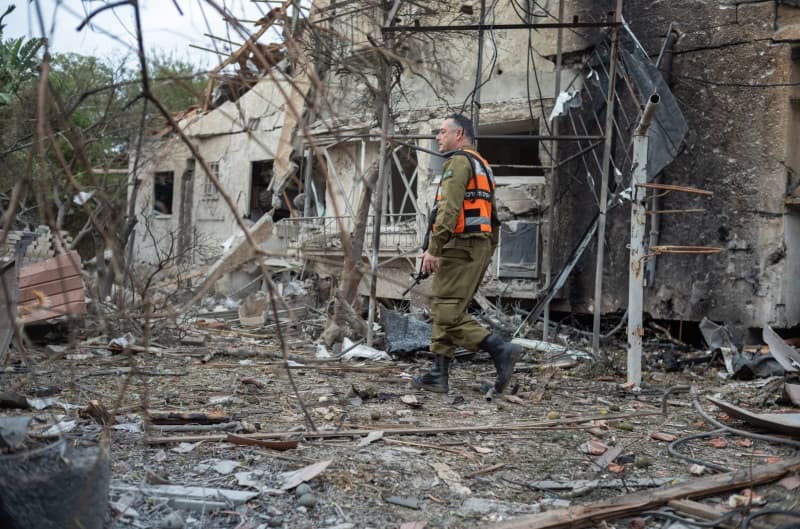On Sunday, a wave of rocket strikes from Lebanon injured multiple individuals across Israel, prompting sirens to blare throughout the region. The Israeli military reported that approximately 165 rockets were launched by Hezbollah, the Iran-aligned militia, necessitating civilians to seek shelter in various parts of northern and central Israel, including Tel Aviv. Haifa, a coastal city, was particularly targeted with around 30 missiles fired within a short span of time, though the military managed to intercept some. These hostile actions from Hezbollah were preceded by an Israeli airstrike in Beirut that reportedly resulted in the deaths of at least 20 individuals. Since the onset of the recent conflict on October 7, 2023, Israel and Hezbollah have engaged in ongoing exchanges of fire, with Israel conducting a military offensive aimed at dismantling Hezbollah’s presence in southern Lebanon since September.
In a related incident on the same day, the Lebanese Army reported the death of one of its soldiers, with 18 others injured, due to an Israeli attack on a military installation in southern Lebanon. This attack targeted an outpost in the al-Amiriya area, close to the coastal city of Tyre, resulting in significant damage to the site, although the Lebanese Army did not detail the type of assault. It was subsequently clarified by Lebanon’s state news agency NNA that the outpost had been subjected to artillery shelling from Israel, leading to a fire in its depots. The Israeli military did not offer any immediate commentary on this incident, reflecting the complexities of the ongoing military tensions.
Despite the escalating violence, the Lebanese army has maintained a stance of neutrality with regard to the Israel-Hezbollah conflict. However, this neutrality has become increasingly challenging as the Lebanese military finds itself inadvertently caught in the ongoing hostilities. It has been documented that several Lebanese soldiers have lost their lives since the intensification of fighting between Hezbollah and Israeli forces began in September, marking a troubling trend in the already volatile region.
The situation remains precarious as the exchanges of fire between Israel and Hezbollah continue to escalate. The Israeli military’s operations primarily focus on neutralizing Hezbollah’s military capabilities, both in terms of ground forces and missile launches. As Hezbollah, backed by Iran, continues to carry out rocket attacks on Israeli territory, the civilian population finds itself in a precarious situation, worried for their safety and forced to adapt to the realities of a war zone. The Netanyahu administration is also under pressure as it grapples with the ongoing conflict, as public opinion increasingly calls for decisive actions against Hezbollah’s military assertiveness.
Amid these developments, the humanitarian impact of the ongoing conflict in both Israel and Lebanon is deeply concerning. The threat of further escalation looms large, with civilians often bearing the brunt of the violence. Reports of injuries and fatalities emphasize the urgent need for de-escalation and move towards diplomatic solutions, though such resolutions seem distant given the current hostilities. The international community watches closely, urging both sides to avoid further civilian casualties and potential spillover effects that could destabilize the entire region that is already fraught with tensions and unrest.
As the conflict enters a critical juncture, it is vital for regional players and international mediators to engage in dialogue aimed at curbing the violence and addressing the underlying grievances that have fueled this enduring confrontation. Reinforced peace efforts will be necessary if another cycle of retaliatory violence is to be avoided, making the need for responsible leadership more crucial than ever. The ongoing exchanges underscore the complexities of the situation in Lebanon and Israel, highlighting the necessity for comprehensive conflict resolution strategies as both sides continue to grapple for control and influence in a region rife with historical enmity.

